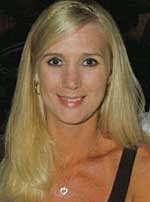Provider Perspective
Florida Provider Meets CPAP Compliance Challenges Head On
 How much of your business is sleep?
How much of your business is sleep?
We do a lot of sleep. I would say 35-40 percent.
How has the new PAP policy impacted your business?
Our Medicare CPAP business has definitely become more cumbersome. We certainly pay attention with great detail to new Medicare CPAP referrals, especially the Medicare CPAP referrals that come to us just as supply patients.
Are a lot of your patients Medicare?
I would say two-thirds of our CPAP business is Medicare. We do other managed care, but we're seeing a lot more Medicare for some reason. I don't know if that's because we've gone out and educated our sleep labs and our physicians so they feel like, 'Wow, I'll just send them the Medicare business now,' but we're seeing a lot of Medicare business for CPAP.
How has the new compliance regulation impacted you? Have you had to put some new business strategies in place to handle that?
We have. We sat down with our respiratory technician. He is the particular staff member that we've put into that position to solely be responsible for performing those data downloads the 31st day that the patient has the equipment. If the patient is compliant, that staff member then walks that patient through calling the physician and setting up a follow-up appointment to obtain that progress note that states the patient is improving with CPAP. And we then follow through with a branch procedure with our billing office that sets in motion the necessary elements to successfully bill Medicare. So, we saw it coming and we sat that all into place. And it has certainly helped.
Are you encountering any trouble with patients and/or physicians in meeting the compliance regulation?
Believe it or not, we haven't. Upon that initial setup, we really talk to them about what Medicare dictates these days, and so we haven't encountered too many issues with our patients or our physicians. Both seem very receptive to the Medicare changes, and we've been able to meet those challenges head on.
You're probably coming up on the first 90-day period or maybe just passed it. What percentage of your patients met the compliance requirements?
We've had several that have come up. We had a couple that kind of fell through the cracks in the very beginning, but after those first few, I would say we probably have a 90-95 percent success rate on getting those patients compliant. The process that we put in place in the very beginning has certainly helped to reach that compliance goal.
Do you have any advice for other providers that may be struggling with the CPAP compliance regulation?
When we were at MED Group a few weeks back, I sat in on the roundtable for CPAP compliance and I listened to all of the questions that those people brought to the table. I know every market area is very different, but the education to the physicians and to the referral sources plays such a huge role in this Medicare compliance game. Our sleep labs work with us. They send us what we're looking for because we have that good relationship in place and because we've helped educate them as to what Medicare needs. Whereas all of the questions that I heard, providers were just having so many problems. Most of our CPAP referrals don't come from individual physicians; they come from sleep labs. That's how it is in our area. It sounded like the problems were from those primary care physicians that were referring CPAP referrals. We, however, can just go in and educate that particular sleep lab and it streamlines a lot of it for us. I think education is the most important thing that you can do to help with that.
Unfortunately, Medicare is changing, and we have to roll with the flow. We just keep doing the best that we can. This is our industry and we need to roll with it.
I think the relationships that we have really help us. Our relationships with our physicians and our sleep labs, they go back, gosh, I've been with this company for almost five years, and I had those relationship with those referral sources prior to coming on with this company. So, my relationships in this industry, here in Pensacola, are at least 10 years old with these physicians. I think that helps.
Sweetwater Medical West, located in Pensacola, Fla., was founded in 1995. The company also has four other Florida branches — all Joint Commission accredited — in Panama City (a satellite of the Pensacola office), Deland, Melbourne and the Keys. Sweetwater Medical West is a full-line DME with a retail front that focuses primarily on respiratory. For more information, visit www.sweetwatermedical.com.
This article originally appeared in the Respiratory Management May 2009 issue of HME Business.